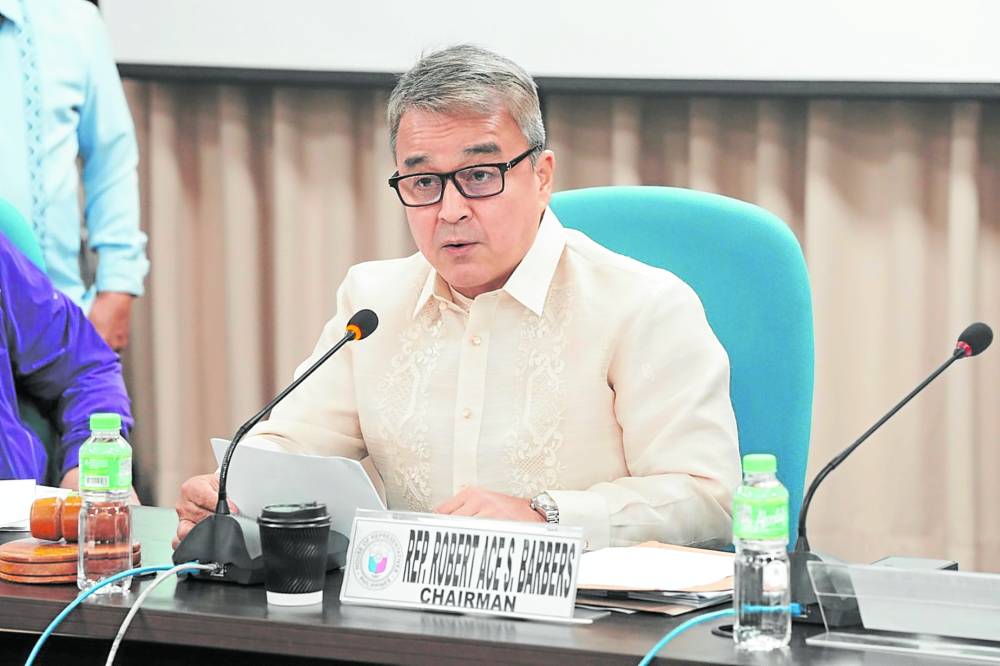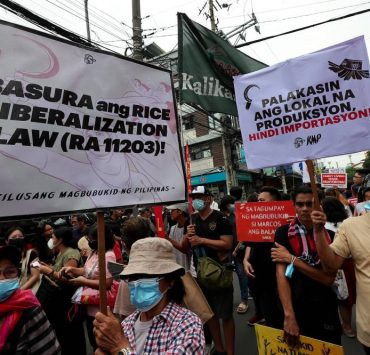House leader seeks subpoena powers for head of cybercrime body

A veteran lawmaker wants the Cybercrime Investigation and Coordinating Center (CICC) to play a central role in preventing cybercrime and fortifying the country’s defense against cyber attacks, with the Philippines ranked as the fourth most targeted nation in Southeast Asia.
Surigao del Norte Rep. Robert Ace Barbers’ filed House Bill No. 11191, which seeks to amend Republic Act 10844, or the Department of Information and Communications Technology Act of 2015, by reverting the cybersecurity mandate to the CICC and giving its head subpoena powers.
In filing HB 11191, Barbers cited a report from cybersecurity firm Kaspersky, which stated that the Philippines experienced 15,312 attempted ransomware attacks against businesses in 2023, “making it the fourth most targeted nation in Southeast Asia.”
He maintained that RA 10844 needed to be amended as it transferred the CICC’s cybersecurity mandate to the DICT.
“It is firmly submitted that placing cybersecurity and cybercrime prevention and suppression under one roof, the CICC, will enhance coordination of the two distinct technical fields, foster joint incidence response, and leverage fully the use of shared technologies which are critical in ensuring data and system protection and real-time collaboration and faster response time,” said Barbers.
Cloaking CICC with investigative powers
Barbers noted that while Republic Act 10175, or the Cybercrime Prevention Act of 2012, designated CICC as the lead agency in preventing and suppressing cybercrime, it lacked investigative powers which severely limited its effectiveness.
Apart from giving the CICC executive director subpoena powers, HB 11191 also seeks to exempt the agency from the “acute limitations” of the Salary Standardization Law to enable it to have a competitive compensation package and top-of-the-line training to attract employees with the required highly technical and specialized skills for cybersecurity and digital forensics.
HB 11191 seeks to amend Section 25 of RA 10175 pertaining to the structure of the Cybercrime Investigation and Coordinating Council which would be chaired by the DICT Secretary, instead of the Department of Science and Technology Information and Communications Technology Office head, with the CICC executive director as the vice-chairperson.
The draft measure provides that the Executive Director of the CICC shall have the authority to administer oaths and issue subpoenas ad testificandum and duces tecum in connection with investigations conducted by the CICC.
“Provided, however, that such authority shall be exercised exclusively by the Executive Director and shall not be delegated to any other person or office,” the draft measure says.
The CICC would be mandated to coordinate law enforcement authorities’ efforts in implementing the Cybercrime Prevention Act of 2012.
It would restore the CICC’s cybersecurity mandate, including “the formulation of the National Cybersecurity Plan, the establishment and operation of the National Computer Emergency Response Team, and the facilitation of international cooperation on intelligence regarding cybersecurity matters which were previously transferred to the DICT.”
HB 11191 further provides that the National Anti-Cybercrime Hub, under the administration of the CICC, shall be established to support the prevention and suppression of cybercrime, foster public cyber safety, and protect the integrity of the country’s digital infrastructure.





















